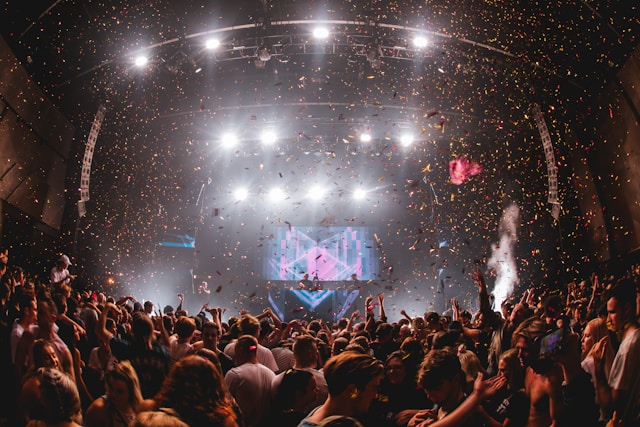Introduction
Entertainment is an essential part of human life, offering relaxation, enjoyment, and an escape from daily routines. From movies and music to gaming and social media, the entertainment industry continues to evolve, shaping cultures and influencing trends worldwide. In this ultimate guide, we’ll explore different forms of entertainment, their impact, and how they continue to redefine our world.
1. The Evolution of Entertainment
1.1. From Ancient Times to the Digital Age
Entertainment has existed since the dawn of civilization. In ancient times, people enjoyed storytelling, theatrical performances, and gladiator battles. With technological advancements, we’ve transitioned to radio, television, and now digital platforms.
1.2. The Rise of Digital Entertainment
With the internet revolution, entertainment has become more accessible. Streaming services, social media, and online gaming have transformed the way we consume content. Traditional entertainment formats continue to merge with digital innovation.
1.3. The Role of AI and Virtual Reality
Artificial Intelligence (AI) and Virtual Reality (VR) have introduced new dimensions to entertainment. AI-driven recommendations enhance user experience, while VR creates immersive gaming and cinematic experiences.
2. Movies and Television: The Magic of Visual Storytelling
2.1. The History of Cinema
Cinema has evolved from silent films to talkies, black-and-white classics to 3D and CGI-driven blockbusters. Hollywood, Bollywood, and other film industries continue to produce diverse storytelling experiences.
2.2. The Impact of Streaming Services
Platforms like Netflix, Disney+, and Amazon Prime have reshaped the television and movie industry. With on-demand access, traditional cable TV is slowly fading, giving rise to personalized content consumption.
2.3. The Future of Cinema and TV Shows
The integration of interactive movies, AI-generated scripts, and Metaverse-driven content is changing the way we experience storytelling. The future promises more audience involvement and hyper-realistic productions.
3. Music: The Universal Language of Emotions
3.1. The Evolution of Music Genres
From classical to hip-hop, jazz to electronic dance music (EDM), music has continually evolved to reflect cultural and societal changes. Each genre has played a vital role in shaping generations.
3.2. The Streaming Revolution
Platforms like Spotify, Apple Music, and YouTube Music have changed the way we listen to songs. Artists no longer rely solely on record sales but gain popularity through streaming and social media presence.
3.3. Live Concerts and Virtual Performances
Music festivals and concerts bring people together, but virtual performances are now rising. Live streaming and VR concerts allow fans to experience their favorite artists from anywhere in the world.
4. Gaming: The Interactive Entertainment Era
4.1. The Growth of the Gaming Industry
Gaming has become one of the most lucrative entertainment sectors, surpassing the film and music industries. Esports, competitive gaming, and mobile gaming have created a massive global audience.
4.2. Console vs. PC vs. Mobile Gaming
While console and PC gaming dominate hardcore gamers, mobile gaming has brought accessibility to a broader audience. Games like PUBG Mobile and Call of Duty Mobile have revolutionized handheld gaming.
4.3. The Future of Gaming: AI and the Metaverse
AI-powered NPCs, realistic physics engines, and metaverse-driven gaming environments are redefining interactive experiences. Players can now create their own virtual worlds and live alternate realities.
5. Social Media: The New Age of Entertainment
5.1. The Rise of Social Media Platforms
Facebook, Instagram, Twitter, TikTok, and YouTube have changed how people consume content. Influencers and content creators play a significant role in modern entertainment trends.
5.2. The Power of Viral Content
Memes, challenges, and viral videos drive internet culture. A single post can reach millions, influencing trends and popular culture globally.
5.3. The Dark Side of Social Media Entertainment
While social media provides endless entertainment, it also leads to issues like addiction, cyberbullying, and misinformation. Balancing usage is key to maintaining a healthy digital lifestyle.
6. Books and Literature: The Classic Form of Entertainment
6.1. The Evolution of Reading
From ancient manuscripts to printed books and now e-books, literature has evolved while continuing to provide knowledge and escapism.
6.2. Audiobooks and Podcasts: The New Reading Experience
With busy lifestyles, audiobooks and podcasts have become popular, allowing users to consume stories and information on the go.
6.3. The Future of Literature
AI-generated books, interactive storytelling, and augmented reality-based reading experiences are transforming literature for the digital age.
7. Stand-Up Comedy and Live Performances
7.1. The Power of Laughter
Comedy shows, stand-up specials, and live performances have gained massive popularity. Comedians use humor to address social and political issues.
7.2. The Evolution of Stand-Up Comedy
From classic comedians to YouTube stand-up specials, comedy has adapted to the digital era while keeping audiences engaged.
7.3. The Role of Comedy in Social Change
Comedy isn’t just for laughs—it can challenge stereotypes, break taboos, and promote discussions on important social issues.
8. Theme Parks and Outdoor Entertainment
8.1. The Thrill of Amusement Parks
Disneyland, Universal Studios, and Six Flags offer immersive entertainment experiences with roller coasters, themed attractions, and live performances.
8.2. The Popularity of Escape Rooms and Adventure Parks
Escape rooms, adventure parks, and interactive outdoor experiences have grown in popularity, offering real-world excitement beyond digital entertainment.
8.3. The Future of Outdoor Entertainment
Augmented reality (AR) and AI-powered attractions will make theme parks even more interactive, blurring the lines between virtual and real-world entertainment.
9. The Business of Entertainment
9.1. The Economics of the Entertainment Industry
Entertainment is a multi-billion-dollar industry, driven by streaming services, advertising, and digital content consumption.
9.2. The Role of Marketing in Entertainment
Effective marketing strategies, including influencer collaborations and social media promotions, determine the success of movies, music, and games.
9.3. The Future of the Entertainment Business
NFTs, blockchain-powered royalties, and direct-to-consumer content models are changing how artists and creators monetize their work.
Conclusion: The Ever-Evolving World of Entertainment
Entertainment is an ever-changing industry that continues to innovate and redefine itself. From traditional art forms to cutting-edge digital experiences, it plays a crucial role in our daily lives. Whether you enjoy movies, music, gaming, or live performances, the world of entertainment offers something for everyone. As technology advances, entertainment will continue to push boundaries, creating even more immersive and engaging experiences for audiences worldwide.
This guide provides a comprehensive look at entertainment’s past, present, and future. What form of entertainment do you enjoy the most?

